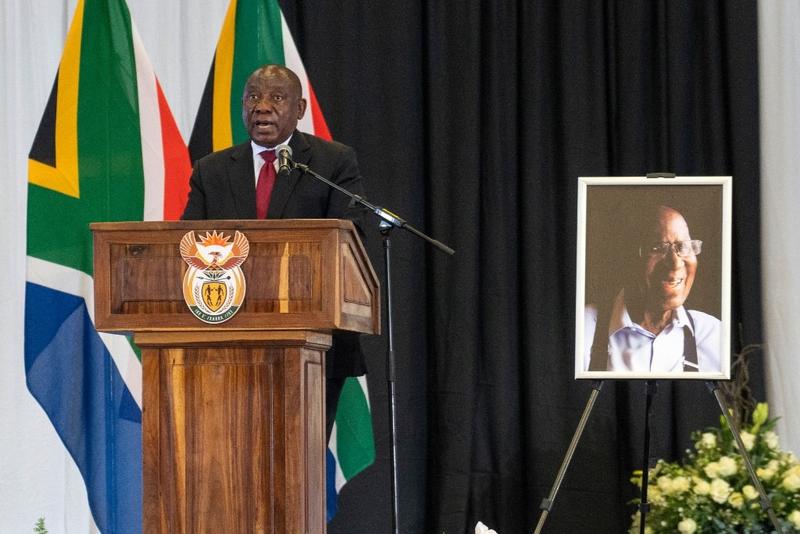 In this July 29, 2020 photo, South African President Cyril Ramaphosa delivers the eulogy during the funeral service of South African anti-apartheid figure Andrew Mlangeni in Soweto, South Africa. (JEROME DELAY / POOL / AFP)
In this July 29, 2020 photo, South African President Cyril Ramaphosa delivers the eulogy during the funeral service of South African anti-apartheid figure Andrew Mlangeni in Soweto, South Africa. (JEROME DELAY / POOL / AFP)
CAPE TOWN - South Africa’s lower house of parliament will vote on a motion of no-confidence in President Cyril Ramaphosa next week, the parliament said on Thursday, but the motion has little chance of succeeding.
Cyril Ramaphosa has been head of state since February 2018 and has been trying to revive investor confidence in Africa’s most industrialised economy
The vote was requested by a small opposition party, the African Transformation Movement (ATM), which has only two seats in the 400-member National Assembly.
The parliament said in a statement that the vote would happen on Thursday, Dec 3, by open ballot. Secret ballots can be held when the political atmosphere is deemed toxic.
The ATM’s leader did not respond to a Reuters request for comment about why his party wanted the no-confidence vote.
A spokeswoman for the parliamentary caucus of the governing African National Congress (ANC) party, which Ramaphosa leads and which has 230 seats in the National Assembly, declined to comment.
ALSO READ: S. Africa president announces milestone in land reform
Ramaphosa’s spokesman did not answer his phone.
Ramaphosa has been head of state since February 2018 and has been trying to revive investor confidence in Africa’s most industrialised economy.
He has found it hard-going given infighting in the ANC and the weak state of public finances.
His predecessor, Jacob Zuma, survived many no-confidence votes before being ousted by Ramaphosa’s allies in the ANC executive, who believed scandals during Zuma’s nine-year tenure were damaging the reputation of the liberation movement of Nelson Mandela.
According to the constitution, a motion of no confidence in the president needs to be supported by a simple majority in the National Assembly to pass.
The largest opposition party, the Democratic Alliance, said it did not support the ATM motion. The Economic Freedom Fighters, the second-largest opposition group, said it would respond later.


